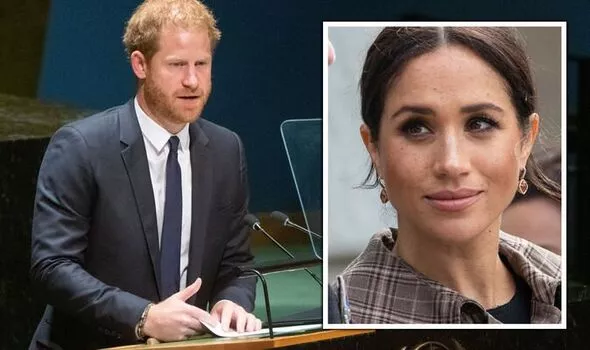In a recent ITV interview, Prince Harry described his legal victory over Mirror Group Newspapers as a “monumental” achievement.
However, many are questioning the significance of this win in light of the costs he has incurred during the legal battle.
Critics have pointed out that while Harry may have won £180,000, he has likely spent millions on legal fees and other related expenses over the past two years.
Some estimates suggest his total outlay could exceed three million dollars.
The prince’s determination to take on the tabloids has been framed as a key factor in the deterioration of his relationship with his family.
He hinted at the emotional toll this fight has taken, weaving in references to his late mother, Princess Diana, and even Nelson Mandela, suggesting that their influences were pivotal in his decision to pursue this case.
Yet, some observers believe he is conveniently omitting crucial details about his own life choices along the way.
As Harry sat down for the interview, his demeanor drew attention.
The choice of attire—a leather necklace that seemed out of place—along with his posture, left many viewers perplexed.
Instead of exuding confidence, he appeared hunched and uncomfortable, as if he were trying to shrink into the background.
This body language contrasted starkly with his co-interviewee, who maintained a more poised presence.
When asked about the vindication he felt from the court ruling, Harry’s response was telling.
He emphasized that the case wasn’t just about individual journalists but involved high-level executives and lawyers, indicating a broader conspiracy within the media landscape.
This revelation raised eyebrows, especially given the royal family’s historical relationship with the press.
The conversation took an unexpected turn when Harry acknowledged the paranoia and fear that stemmed from being in the public eye.
He described how such feelings can distort one’s perception of reality, especially when personal matters are thrust into the limelight.
However, critics argue that his assertions ring hollow, considering his own extensive media engagements.
Interestingly, Harry’s reflections on his mother’s struggles with the press sparked debate.
He claimed she was portrayed as paranoid when, in fact, she was a victim of media intrusion.
Yet, many believe that he glosses over the complexities of her situation, choosing instead to use her legacy as a shield for his own grievances.
His comments on privacy also raised eyebrows.
While he expressed a desire for more personal space, he is simultaneously involved in projects that keep him in the public eye.
This contradiction highlights a significant tension in his narrative—seeking privacy while actively engaging with the media.
The interview also touched on Harry’s personal relationships.
He hinted at how public perceptions of his marriage have been influenced by his behavior, suggesting that people might connect the dots based on his past.
This acknowledgment of scrutiny seemed to clash with his insistence on maintaining boundaries regarding his private life.
As the discussion unfolded, it became clear that Harry’s focus remained on the past.
He spoke of events that occurred years ago, expressing indignation over how they continue to affect him today.
Critics argue that this fixation prevents him from moving forward, as he remains trapped in a cycle of grievance.
Throughout the interview, Harry’s attempts to articulate his motivations often felt forced.
His references to various influences—from roasted chicken to a desire for privacy—seemed disjointed and lacked depth.
This scattered approach left many wondering about the sincerity of his claims.
Ultimately, the conversation revealed a man grappling with his identity amidst a turbulent relationship with the media and his family.
As Harry continues to navigate these waters, it remains to be seen whether his legal victories will translate into genuine peace or if they will merely serve as another chapter in a long saga of royal drama.

